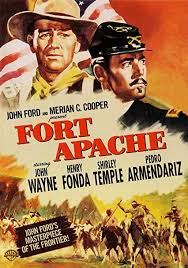Eagle River II
 Sunday morning a divine light reflects off a cover of deep snow. Several gown deer crossed the road well in front of my vehicle. I had to turn my head and look after them as they disappeared into the woods. One appeared to be a young buck. This is their time. They know spring is at hand, mating season, and their habitat remains quiet. The snow-bird humans have yet to arrive with their clamor, motorized toys for play on the trails and the lakes.
Sunday morning a divine light reflects off a cover of deep snow. Several gown deer crossed the road well in front of my vehicle. I had to turn my head and look after them as they disappeared into the woods. One appeared to be a young buck. This is their time. They know spring is at hand, mating season, and their habitat remains quiet. The snow-bird humans have yet to arrive with their clamor, motorized toys for play on the trails and the lakes.
For deer is there a distinction between work and play? I’ll never ask a deer. I doubt if they’d understand the question, and by extension, how could there be such distinct categories in a deer mind? I’d bet there is just life, life textured by finding enough to eat, searching for a mate, keeping an eye out for predators (wolves and coyotes and humans), pleasure and pain. I don’t think they’d worry about death, just the deep instinct to remain alive. No worries about death.
We had a “good” day with Aunt Clara yesterday, and this mornings conversation with her was satisfying. Yesterday we played games, watched a fair amount of Fox News TV, the Weather Channel on Television, and several John Wayne Western movies. The movies are old favorites of hers and I am sure she viewed them many times with Kurt. Kurt loved horses. He owned many, each with a name as if the animal was an adopted family member. Kurt was a devotee of the American west, and the old movies.
 We watched Hondo, and Fort Apache starring John Wayne and Henry Fonda. I sympathized with the Apache side of the conflict between the migrating Americans, and the dispossessed who lived on the land originally. I saw Fort Apache with fresh eyes as I do not remember seeing the movie before. It seems to me that nothing much has changed. Americans, represented by their elected government break promises whenever we are ready to break them. The reason given does not need to be remotely real. I think we believe our own propaganda when we think there is anything special, or exceptional, “the last best hope for humanity,”—about us.
We watched Hondo, and Fort Apache starring John Wayne and Henry Fonda. I sympathized with the Apache side of the conflict between the migrating Americans, and the dispossessed who lived on the land originally. I saw Fort Apache with fresh eyes as I do not remember seeing the movie before. It seems to me that nothing much has changed. Americans, represented by their elected government break promises whenever we are ready to break them. The reason given does not need to be remotely real. I think we believe our own propaganda when we think there is anything special, or exceptional, “the last best hope for humanity,”—about us.
I brought a book of poems with me, by James Kavanaugh, entitled Maybe If I Loved You More. Kavanaugh was my contemporary, born 1928 and died 2009. He was from Kalamazoo, Michigan. I just learned that he was a priest, a radical thinking priest. Now I have a clue to the source of the excellence of his poetry.
Here is one that I like a lot.
LIKE THE BOY
Will nothing make me feel like the boy who drank cold Pepsis on a
summer afternoon,
Who fell in bed at night with a delicious exhaustion, moaning with
pleasure beyond sex and success?
I am tired of tax shelters, bored with write-offs, weary of properties I do
not want, sick of financial revenge and a strong portfolio.
How does an honest man live upon the earth? What does he eat, or
does it matter? Where does he live, or does it matter?
To whom does he give away his luxury, or it is important that he
be rid of it?
I stand soft among a soft people, hear the bleatings about inflation and
the sinking dollar,
Wanting some discipline my life does not provide, some community
beyond man and beast.
Happiness for me is not a state of rest, but of motion. Not some qui-
etude, but an energy. Not a peace but a passion
I want to believe in far more than a God who settles things at the end,
Or a country that is unprincipled and vacillating as I am.
There is no rite of passage anymore, nothing that makes a boy a man,
Certainly nothing that makes a man a man and keeps him there.
How do I want to live the rest of my life upon the earth?
What inspires me and gives me peace? Another book? Another build-
ing? Another business? Enough of that!
I want to start a war! A war that will kill no one save the passionless
part of me that drifts and flounders on the earth,
So that I might once again feel like the boy who drank cold Pepsis on a
summer afternoon and fell into bed with delicious exhaustion.